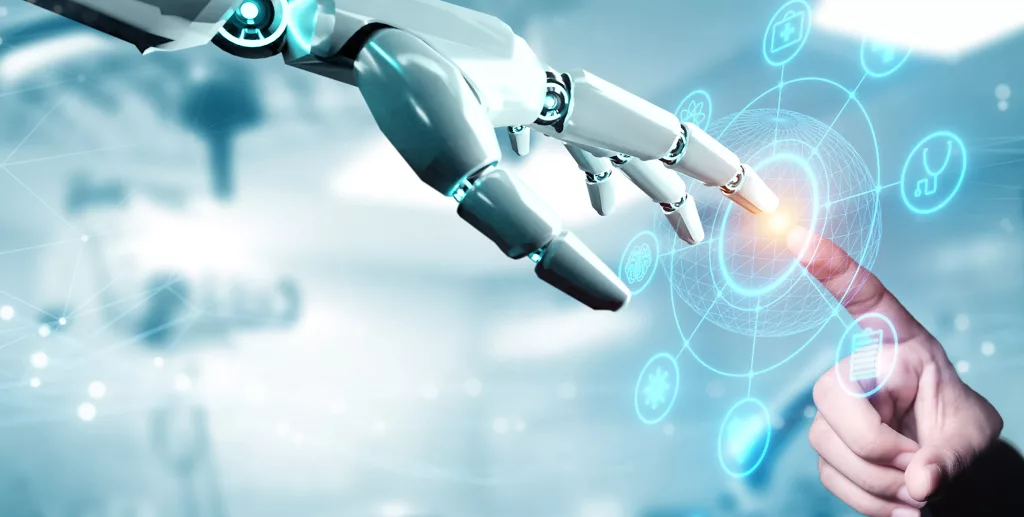AI Set to Drive Nail in Coffin of Long Stagnation
From Excited to Ecstatic: Expectations of AI Drive Perception
Recognised as one of the world’s most prestigious management consulting firms, though no stranger to controversy, McKinsey & Company is quite sanguine about the benefits of artificial intelligence (AI) to the economy. Early adopters of the technology could see productivity gains of up to 25 percent by 2030. Over the next seven years, gross world GDP could rise by as much as 26% according to projections of the McKinsey Global Institute.
Investment bank Goldman Sachs is even more buoyant and suggests that the “widespread adoption” of AI may well drive a 7 percent per annum increase of global GDP with the boomtimes lasting a decade or longer. The bank points to the near-limitless upside for labour productivity and cites the electric motor and personal computer as precedents for such significant hikes in output.

A few economists go all-out in their predictions and (seriously) expect an era of infinite incomes to arrive before long – forcing an end to the Long Stagnation. They expect capital to replace labour altogether – a Marxist’s worst nightmare – unlocking a counterintuitive, almost utopian, world that handsomely rewards slacking, chilling, lounging, gallivanting, and other forms of relaxation and/or self-indulgence.
The Impact
Leaving that enticing mirage aside, labour markets are set for major disruption. Goldman Sachs economists Joseph Briggs and Devesh Kodnani found that some two-thirds of present jobs will likely be impacted by AI. The technology, they guesstimate, may fully replace up to one quarter of the current global workload.
However, to soften their findings the bank’s economists also note that 60 percent of today’s workers are employed in jobs that did not exist in 1940. This implies that over the past 80 years, new technologies have been responsible for over 85 percent of employment growth. They see no reason why AI should not have a similarly positive impact on employment.
Whilst economists and researchers are mostly exuberant, if not ecstatic with some turning pirouettes of joy, markets seem less impressed. Companies involved in AI have significantly underperformed lagging the global average (MSCI World) and have only recently attempted to claw back some of their losses. Market analysts seem nonplussed as investors remain sceptical and do not appear to expect an AI-powered boom even on a 30-to-50-year time horizon.
Historically, major technological breakthroughs have not sparked abrupt and radical change. Even the Industrial Revolution, which may have started with the invention of the spinning jenny, was ultimately pushed forward by the advent of steam power, a strengthening of property rights, and the rise of a scientific ethos, amongst others – a fortunate confluence of events and inventions.
Fears that Big Tech may dig a moat around AI and keep the technology under its proprietary wrap seem likewise overblown. Goldman Sachs research expects AI to add some $430bn to enterprise-software revenues in a best-case scenario. Whilst a fabulous sum for any company to claim, the amount is reduced to insignificance when set against global GDP. It certainly is not going to move the dial.
Wait and See
The hesitancy of private and institutional investors to shower big money on AI may be due to the unlikelihood of any single company attaining a monopoly in the sector. Whilst it costs a hefty sum to train an implementation of generative AI – GPT-4 reportedly cost $100m to properly coach – all iterations of the technology use remarkably similar models and run on generic, albeit exceedingly powerful, computers. Moreover, the code employed is mostly open source allowing amateurs to successfully build their own models.
The low threshold to manipulating generic artificial intelligence causes Anthropic, a San Francisco-based start-up, no end of worry and motivates the company to develop a safer and more robust alternative, less prone to being manipulated by those who dwell on the darker side of human nature.
The company, with just 160 employees, raised $1bn from investors including Google and Salesforce. Anthropic was founded on the fear that AI models may soon approach artificial general intelligence (AGI) defined as machine intelligence on a human level. According to Anthropic Chief Scientist Jared Kaplan, “soon” equates to just five to ten years.
Anthropic considers AI an “existential risk” to humanity even as the company works on a perfected version of its chatbot Claude. The first one was never publicly released for fear that it could be misused. Branded an AI Safety Lab, Anthropic was founded in 2021 by a group of OpenAI employees who grew concerned that their research was being exploited for commercial purposes only and without much regard for social consequences.
AI Constitution
Claude 2.0 is as functional and versatile as other AI chatbots derived from large language models. However, it conforms to an exhaustive list of written principles – akin to a constitution – which it must follow closely. A second AI model is layered on top to check responses against that constitution and provide corrections where necessary.
Anthropic, registered as a public benefit corporation which matches the pursuit of profit to social responsibility, ultimately seeks to eliminate doom scenarios such as Skynet from the Exterminator film franchise which launches a nuclear war to get rid of its human masters. US venture capitalist Marc Andreessen does not subscribe to such apocalyptic visions and predicts a formidable boost to productivity, pushing economic growth to heights unvisited and heralding an era of abundant and universal material prosperity.
However, as noted, investors seem reluctant to commit to AI, instead nibbling away at its fringes such as graphic processing unit (GPU) manufacturer Nvidia which saw second-quarter revenues jump by almost $4bn (approx. +55%), becoming only the sixth publicly traded company with a market cap north of $1tn. Companies that may successfully leverage the power of AI such as Priceline, Expedia, Booking.com, United Healthcare, and Trivago have also been tagged as early winners.
Dotcom 2.0?
Senior investors, those aged over 40, may fear a repeat of the infamous dotcom bubble that marked the late 1990s and deflated spectacularly in the early 2000s.
Redwood City-based C3.ai, an artificial intelligence pioneer trading on the New York Stock Exchange (NYSE: AI), is a textbook example of great expectations gone awry. After watching its shares plunge from a post-IPO high of $161 in December 2020 to a miserable $11 at the start of 2023, the company got a second wind from bargain hunters. Since that record low, C3.ai shares gained a staggering 258% (YTD) even as its revenue only increased 6%.
In their periodic market reports, Morgan Stanley analysts have repeatedly cited Amara’s Law – named after US scientist and futurologist Roy Amara (1925-2007) – who concluded that “we tend to overestimate the effect of a technology in the short run and underestimate the effect in the long run.”
Over the past centuries, transformative technologies have been few and far between. The steam engine, internal combustion engine, and widespread electrification saved considerably on labour and resulted in distinct productivity gains. However, the personal computer, the internet, and the smartphone did not. For the past twenty or so years productivity growth has been rather lethargic. In fact, entire treatises have been written to prove that the humble washing machine had a greater impact on productivity than the internet.
Distractions
One reason for this may be the entertainment value of new technologies which often provide a great many distractions instead of focusing the user’s mind on the job at hand. Also, the constant bombardment of frivolous and superfluous emails, private messages, and silly management edicts suffered by office workers, who are often tormented by a cacophony of ‘pings’ in a digital version of Chinese water torture, severely undermines output.
For now, investors yearning to catch a ride on the AI bandwagon mostly do so by turning their attention to Big Tech – Microsoft, Apple, Alphabet (Google), and Meta (Facebook) – considering that it requires deep pockets to compile and train large language models.
However, that supposition may be flawed. There is no shortage of start-ups in the US or Europe successfully raising $100m+ in venture capital. The flipside for retail and institutional investors is, of course, that these nascent companies will take years to debut on the stock exchange.
Cashing in on the AI boom thus requires a fair degree of human intelligence, a pinch of wariness, and a very unscientific measure of intuition. Also, keep an eye out for regulation.
You may have an interest in also reading…
Oil North of 60: Africa Seeks to Cash in on Energy Crunch
Already jittery markets, largely without direction, are braced for a near-perfect storm as central banks taper their bond-buying sprees and
World Economic Forum’s Meeting Agenda Takes a Tilt at ‘Dark Topics’, Ai-Da — and Mind Control…
‘It’s worse psychologically to feel that you are useless than to feel you are exploited’ — Yuval Noah Harari In
A COVID-19 Silver Lining: Precision Medicine for Brain & Mental Health
Did you know that nearly 17% of the Swiss population suffer from one or more mental disorders? And that more















































































